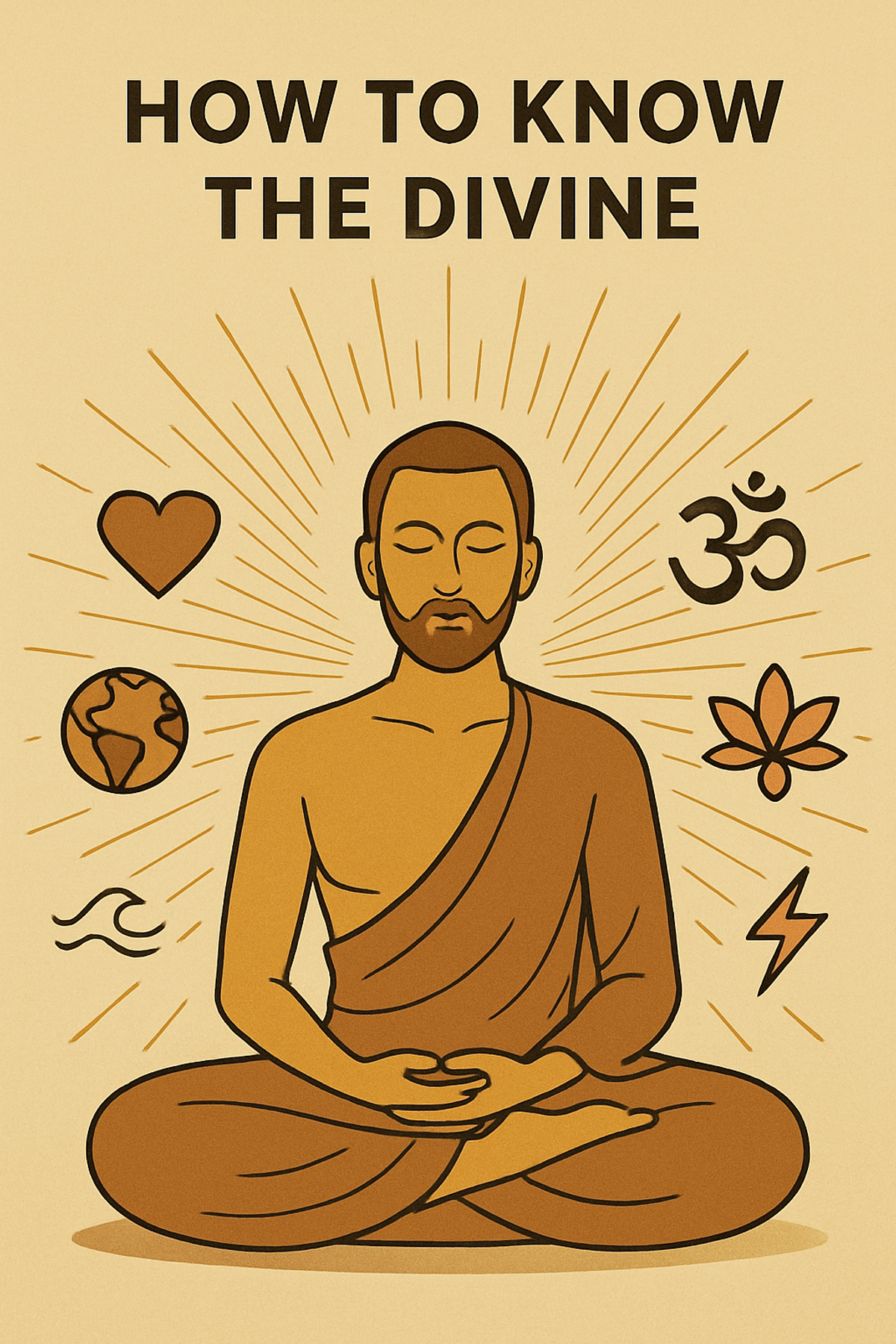Real Spirituality Begins Where Words End
How to Know the Divine
From Belief to Knowing: Making God Real in Everyday Life

Kunal Trehan
Personal Strategy - Spirituality

To know the Divine is to feel a deep, unshakable love—not as a passing emotion, but as a lived presence. Yet love without understanding is unstable. How can we love something we don’t even grasp? Before we can truly love the Infinite, we must begin to sense what It is.
We’re told, “God is love.” But most of us know love as attachment, longing, or even pain. So how do we imagine Divine Love—a love that asks nothing, gives everything, and holds all of life together without condition?
Is the Divine energy? Consciousness? Space? Spirit?
These are words we often use, but they are not answers. They’re like pointing to the ocean and describing only the waves. You may call the sea “water,” “aqua,” or “rain”—but those are just names. To truly know the ocean, you must dive in.
So, What Is God?
If someone asks you, “What is God?”, you might say:
“Spirit,” or
“Pure Intelligence,” or
“That which pervades everything.”
But those are labels or symbols. Definitions can circle endlessly without landing in truth. Just as describing the sun to someone who’s never seen light falls short, so too does speaking about the Divine without having experienced it.
As the poet wrote:
“Maula maula laakh pukaare, maula haath na aaye
Lafzon se hum khel rahe hain, maana haath na aaye”
We cry his name - ‘Maula’ / ‘Ram’ / ‘Jesus’ a hundred thousand times, but the Divine doesn’t come into our hands.
We are only playing with words—we name It, but never touch It.
In the Upanishads, sages don’t define Brahman with certainty—they describe It through silence, or paradox:
“Neti, Neti” – Not this, not that.
They point not to definitions, but to a state of realization.
Knowing God Isn’t Intellectual—It’s Experiential
As this verse reminds us:
“Jo paani ke naam ko paani jaane, yeh naadaani hai
Paani paani ratate ratate, pyaasa hi mar jaaye”
To think that chanting the word “water” quenches thirst is ignorance.
One may keep repeating ‘water, water’ and still die thirsty.
You can read every scripture. You can debate philosophy. But without direct experience, you’ll only have concepts, not clarity.
As the Bhagavad Gita teaches:
“Among thousands of people, one may strive for perfection, and among those, perhaps one knows Me in truth.”
That “knowing” is intuitive. It doesn’t come from reason but from a deep stillness where ego disappears and something vast shines through. In that moment, you don’t believe in the Divine—you become aware of it.
Making the Divine Real in Everyday Life
But here’s the problem: our concept of God often feels far away. We may believe in the Divine, but it rarely influences how we live.
If your idea of the Infinite doesn’t shape how you speak to others, how you act under pressure, how you face failure or joy—then it’s just an idea. Not a truth.
The goal is to know the Divine in such a way that you can’t imagine life without that awareness—not in temples or scriptures only, but:
• when you’re handling money,
• talking to a loved one,
• making decisions,
• reading a book,
• or just sitting quietly.
Your God-connection must feel as real when doing your taxes as when you’re meditating under a tree.
Why We Struggle to See the Divine
As the poet wrote:
“Ism pe kaane hone vaala aur musamma khone vaala
Kaam na karne vaala moorakh bas naam se jee behlaaye”
The one obsessed with names forgets the reality behind them.
The one who does not act remains fooled, comforting himself with words.
We look for God in holy texts, in nature, in the stars. We hear about It in chants, lectures, and scriptures. But all these are just windows, often clouded with ideas, doubts, and secondhand beliefs.
The light is there, but the glass is fogged.
We must learn to clean the window—clear away fear, distraction, and ego—until the view becomes direct.
The Path Inward: From Knowing About to Knowing Within
Intuition is the key. Not gut feeling, but spiritual perception. It’s how a yogi sees beyond the visible. It’s how a mother senses her child’s need without a word. It’s how the soul feels the presence of something eternal.
But intuition can’t grow in a mind clouded by restlessness, poor habits, or emotional heaviness. To feel the Divine, we must make space for it.
The inner temple must be clean and strong—physically, mentally, and spiritually.
This is why spiritual practice matters:
• Conquering reactive moods,
• Softening selfish desires,
• Healing the body,
• Calming the mind.
Without these, we sit in the dark searching for treasure and wonder why we can’t see it.
⸻
In Summary
To know God is not a matter of belief.
It’s a matter of direct inner experience.
It is a gradual uncovering, a remembering, a returning.
Start by tuning inwards.
Still the noise.
Refine your awareness.
Let love become presence.
Let presence become perception.
And one day, without trying, you may find yourself standing in stillness—no longer seeking the Divine, but being it.